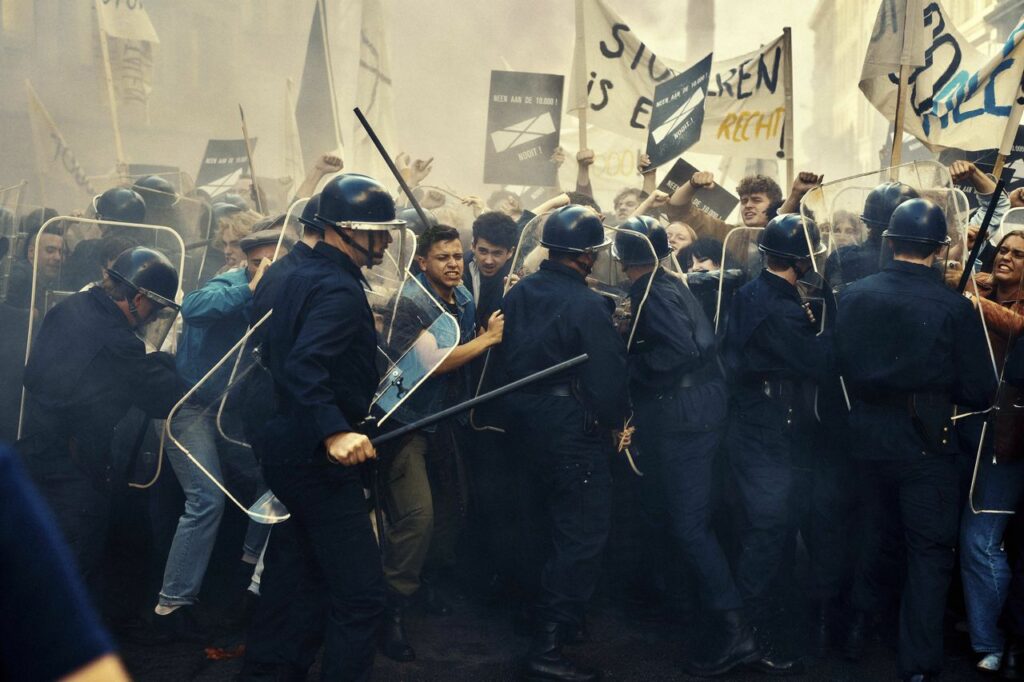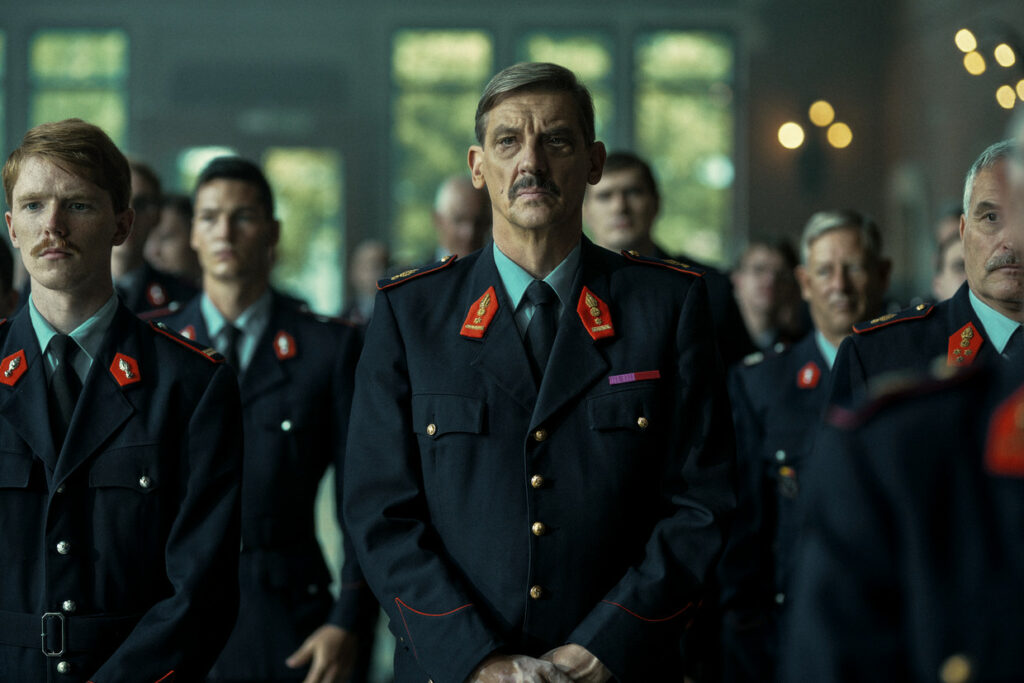Every Sunday, Flemish, Walloon and Brussels residents alike can watch '1985', a new television series about one the darkest pages in Belgian history, marked by police corruption and crimes committed by the so-called Brabant Killers.
Importantly, the project marks the first-ever collaboration between the Flemish and Walloon public broadcasters.
This is the first time the Flanders' and Wallonia's public broadcasters, VRT and RTBF, worked together on a fiction project for adults – making the series a true Belgian production with most of the story taking place in Brussels, featuring both French-speaking and Dutch-speaking actors.
However, as with most things in Belgium: the language aspect has complicated matters.
While the Sunday evening series – of which the first two episodes have already aired – has widely received praise from critics and the public alike, RTBF in particular has been under fire for deciding to dub the lines of the Dutch-speaking actors in French.
"The series is available in French dubbing and the original version with French subtitles, on both television and online. Our public is free to choose," Aurore Crabbé, responsible for communication at RTBF, told The Brussels Times.
A missed opportunity
While television automatically broadcasts the French dubbed version on Sunday evenings, viewers do have the option of switching over to the subtitled version with the original audio, she stressed. "Before the programme starts, it is announced that viewers can choose their language with a button on their remote control."
Still, the fact that RTBF decided to dub Dutch speakers, while Flemish broadcaster VRT is providing subtitles for the French dialogues, has generated another language discussion in Belgium – particularly in light of the recent headlines about children's insufficient language skills.
Flemish comedian and columnist Bert Kruismans took to Twitter (in French) to call RTBF's decision to dub "a missed opportunity" and denounce the fact that Francophone viewers "will not hear Dutch at all."
In a letter published in De Morgen on Friday, Sheraz Rafi, an adviser to Brussels Minister for Multilingualism Sven Gatz, also called it "regrettable" and added that automatically broadcasting the dubbed version "ensures that the uniqueness of a bilingual country in the series is ignored."
He called on both VRT and RTBF to provide the programme with bilingual subtitles, the same way films are shown in Belgian cinemas. "This way, mixed-language families – and there are many in Brussels – can follow the series together without language problems."
"According to the latest Language Screening, the Brussels-Capital Region has more than 20% language-mixed families who combine Dutch and French," he wrote. "That number is constantly increasing. Bilingual subtitles on our national broadcasters can help to better understand the two major national languages."
As the Flemish broadcaster supported by Flemish tax money, however, VRT has the task of catering to the Flemish public, which it does with Dutch subtitles, a spokesperson explained to The Brussels Times.

Still from '1985.' Credit: RTBF
Another option – mostly supported by expats living in the Brussels-Capital Region who are curious about the story but are not fluent (enough) in Dutch or French to follow a television series in one of the languages – is offering the option of English subtitles.
However, both VRT and RTBF made it clear that they only provide subtitles in their own language. "It is not a conscious choice not to provide English subtitles but rather a question of tradition; we only provide Dutch subs," Jan Sulmont, spokesperson for VRT, told The Brussels Times.
The widespread interest in the TV series, including from non-Belgians, comes as no surprise as the series tells the story of one of the most evocative cold cases in Belgian history caused by the infamous Brabant Killers ('De Bende van Nijvel' in Dutch, 'Les Tueurs du Brabant' in French).
Related News
- Brabant Killers case in Belgium: who, what, when?
- Memorial to the victims of the Brabant killers to be erected at Delhaize in Aalst
- Suspected Brabant killer arrested in Thailand
The fact that the members of the gang, who are responsible for a series of murders, burglaries and robberies (killing a total of 28 people and injuring more than 40), have to this day not been caught and convicted – or even identified, in some cases – is still considered a big stain on the reputation of the Belgian Justice.
The story is told from the point of view of two friends who start a career with the Gendarmerie ('Rijkswacht' in Dutch), Belgium's now-dissolved national military-based police force, and the sister of one of them who decides to study law at the VUB.
While the series is a work of fiction, the story is based on true events and shows a lot of archive footage from newsreels in Belgium's turbulent 1980s to "provide a truthful insight" into what it was like to live then, the producers stressed.

